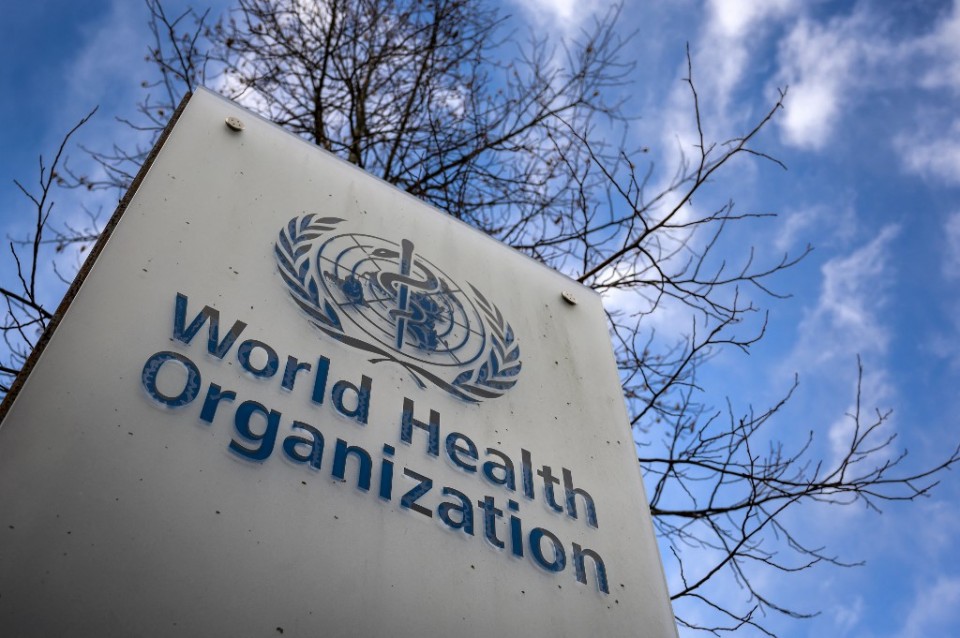Noting this, WHO recommends restricted access to alcohol, liquor during lockdown

(Eagle News) – Persons who have a history of alcohol, illegal drugs and substance use are more at risk in getting severe COVID-19 and being hospitalized, according to various studies and the World Health Organization.
In fact, WHO is urging all countries to restrict alcohol or liquor use during lockdown as this had been found to contribute to severe COVID-19 infection, and even deaths.
The organization also issued a fact sheet on alcohol use amid misinformation being circulated about drinking alcohol to fight COVID-19.
-WHO busts myths about alcohol consumption –
“Fear and misinformation have generated a dangerous myth that consuming high-strength alcohol can kill the COVID-19 virus. It does not. Consuming any alcohol poses health risks, but consuming high-strength ethyl alcohol (ethanol), particularly if it has been adulterated with methanol, can result in severe health consequences, including death,” the WHO Regional Office for Europe said in a previous statement.
“In no way will consumption of alcohol protect you from COVID-19 or prevent you from being infected by it,” WHO noted in a fact sheet.
WHO reminds the public that they can use alcohol to disinfect their hands or even their surroundings to kill the virus, but that drinking alcohol won’t kill the virus. In fact, drinking alcohol can lead to COVID-19 deaths as it weakens the immune system and makes one prone to severe infections and complications.
-Risk of complications, death increase with alcohol, substance use –
A study on alcohol and substance use and its relation to the risk of hospitalization, complications and mortality among adult patients diagnosed as having COVID-19 published in psychiatry online.org also showed this direct correlation.
The study done by Jacques Baillargeon, Ph.D., Efstathaia Polychronopoulou, M.S., M.P.H., Yong-Fang Kuo, Ph.D., Mukaila A. Raji, M.D. concluded that “COVID-19 patients with substance use disorders are at increased risk for adverse outcomes.”
The researchers studied adult patients with COVID-19 for four months, from Feb. 20 to June 30, 2020, and found that “substance use disorder were associated with increased hospitalization, ventilator use, and mortality.”

They said that “given the virus’s impact on the respiratory, cardio vascular, and immune systems—which can be impaired by opioids, tobacco, and abuse of other substances—persons with substance use disorders are at increased risk of COVID-19 complications, including acute respiratory distress syndrome (ARDS), renal failure, and death.”
“There is ample evidence that opioids, alcohol, methamphetamines, smoking, and vaping all have strong immunosuppressive effects, resulting in greater susceptibility to infection, more severe and longer lasting ill nesses, and lower levels of protective antibodies in the blood,” the study said.
Results of the experts’ study were conclusive.

“Three outcomes—hospitalization, ventilator use, and mortality—within 21 days of COVID-19 diagnosis were examined in the substance use disorder versus non–substance use disorder cohorts,” their study showed.
Simply put, “having a substance use disorder was associated with increased hospitalization, ventilator use, and mortality.”
The study involved 11,124 adults diagnosed with COVID-19 from 35 health systems covering all major regions of the United States.
Another study involving a larger population in the U.S. also showed this correlation. The study published in the Molecular Psychiatry journal studied around 73 million unique patients, including 7,510,380 patients with a diagnosis of Substance Use Disorder (SUD). Around 12,000 of these patients had been diagnosed with COVID-19.
“Patients with a recent diagnosis of SUD were at significantly increased risk for COVID-19, an effect that was strongest for individuals with OUD (opioid use disorder), followed by individuals with tobacco use disorder (TUD),” it said citing analysis of electronic health records of the patients across the US as of June 15 last year.
The study was conducted by doctors QuanQiu Wang, Rong Xu (both at Case Western Reserve University), David C Kaelber (The MetroHealth System, Cleveland, OH), and Nora Volkow. The study was first published in Sept. 2020.
-WHO: Restrictions on alcoholic drinks should be enforced amid pandemic-
WHO stressed the importance of making people understand that drinking alcohol would create greater risk for more people to get severe COVID-19 infection.
“During the COVID-19 pandemic, we should really ask ourselves what risks we are taking in leaving people under lockdown in their homes with a substance that is harmful both in terms of their health and the effects of their behaviour on others, including violence,” said Carina Ferreira-Borges, Programme Manager, Alcohol and Illicit Drugs Programme, WHO/Europe.
The WHO regional office in Europe noted this.
“Existing rules and regulations to protect health and reduce harm caused by alcohol, such as restricting access, should be upheld and even reinforced during the COVID-19 pandemic and emergency situations; while any relaxation of regulations or their enforcement should be avoided,” it said in a previous advisory.
This needs to be complemented by communicating with the public about the risks of alcohol consumption, and maintaining and strengthening alcohol and drug services,” it added.
Aside from weakening the body’s immune system, drinking alcohol can affect decision-making and behavior, and even lead to interpersonal violence, WHO said.
(Eagle News Service)







